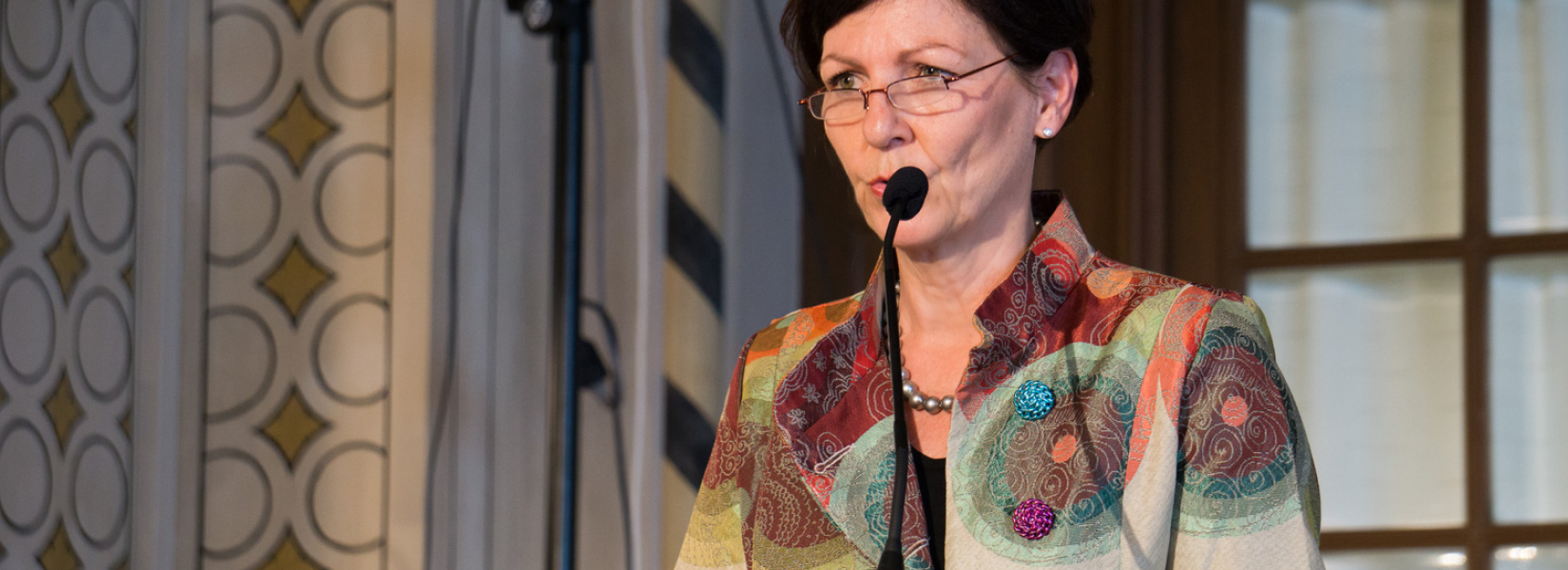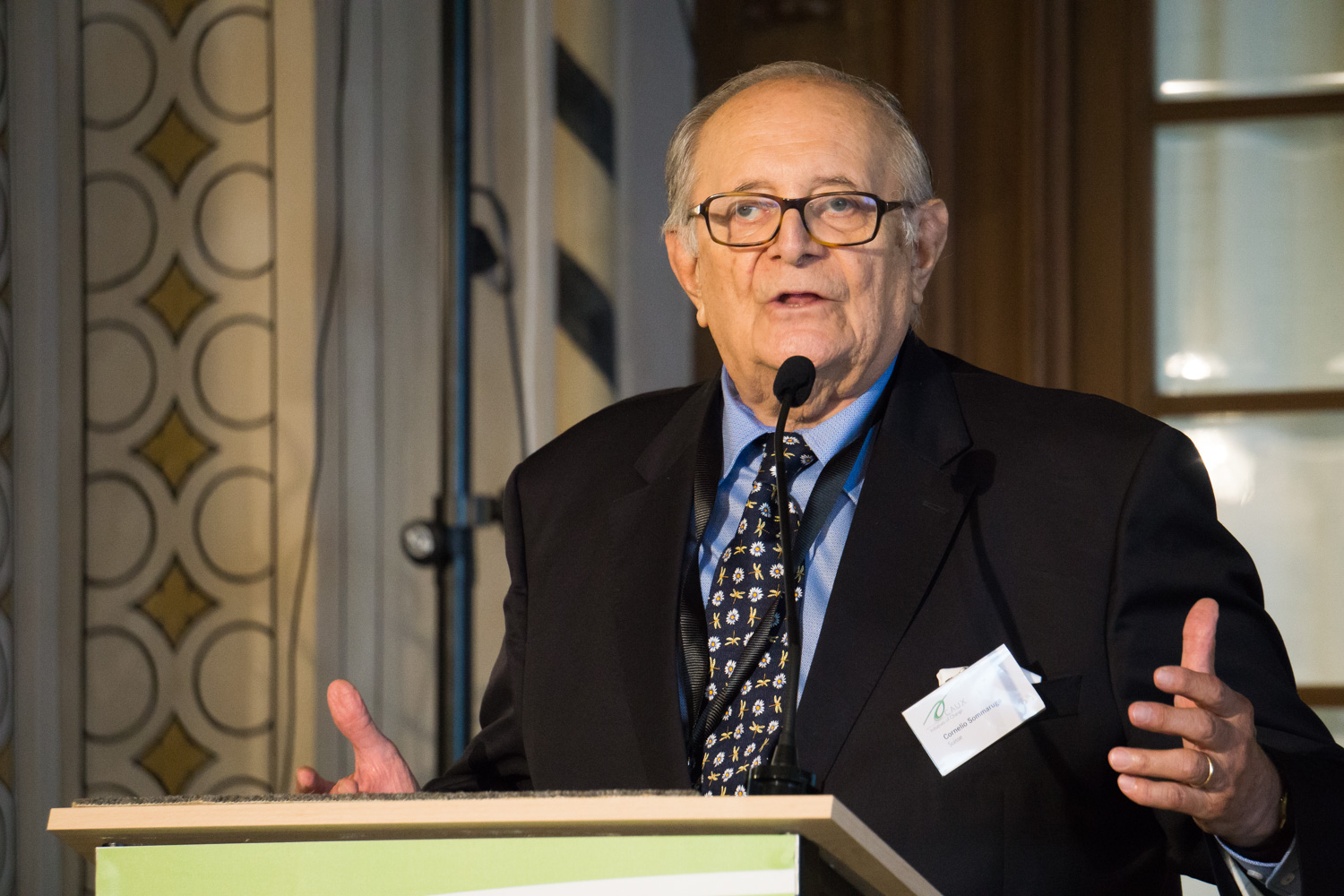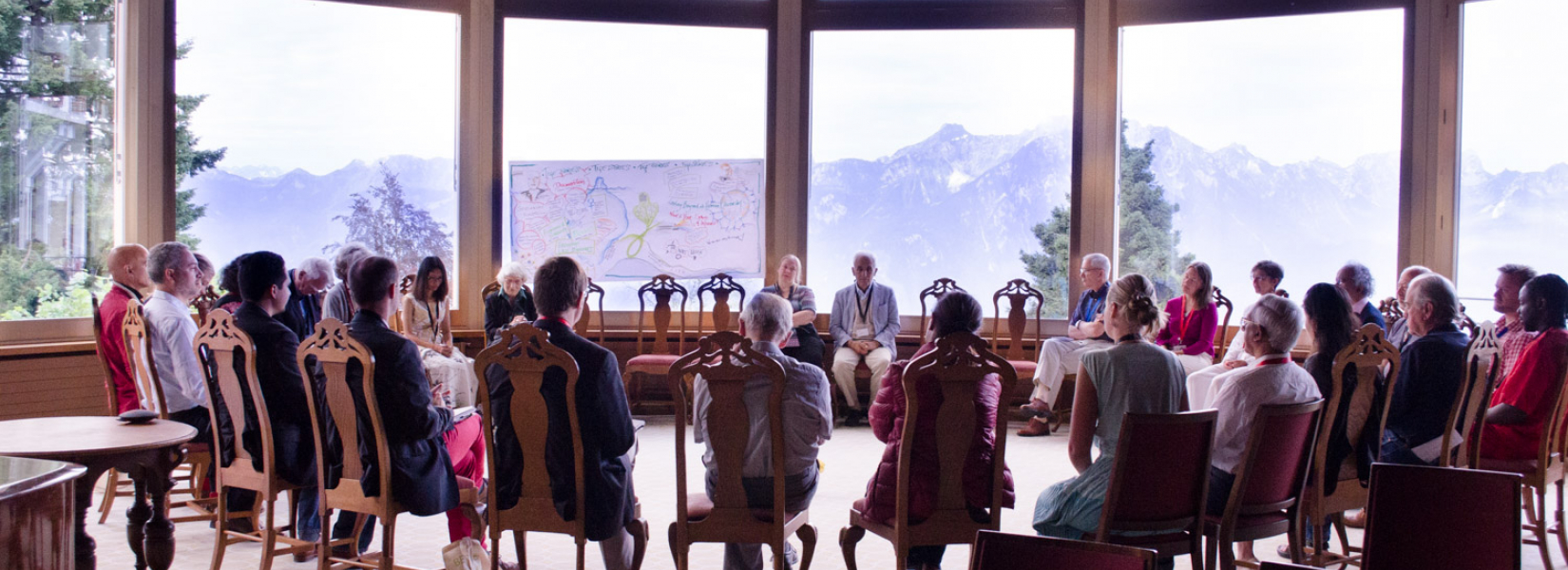Closing of the 2016 edition of the International Peacebuilders Forum
A week of reflection, heartfelt dialogue and constructive brainstorming
23/07/2016
Mpanzu Bamenga closed this year’s International Peacebuilders’ Forum (IPF) by sharing his story of migration from Zaïre to the Netherlands. He spoke of difficulties he encountered as a migrant, and he described the way in which he overcame barriers in his past and barriers today that arise in his political work. Through his story, he encouraged participants to approach those with whom they feel the biggest conflict with forgiveness, compassion, and understanding.
Mr. Bamenga’s speech was a perfect end to this week that has brought reflection, heartfelt dialogue, and constructive brainstorming on the future of peacebuilding among people displaced by violent conflict.
IPF 2016 opened on Wednesday 20 July with Janet Lim’s reflection on her work with UNHCR. Ms Lim invited participants to consider how to use grassroots projects to better involve migrants in addressing the societal problems associated with mass migration.
in addressing the societal problems associated with mass migration.
On Thursday 21 July, participants worked together to identify challenges to peacebuilding in their own contexts. They then broke into workshops to explore peacebuilding methods and approaches that they have not previously encountered. These workshops inspired them to consider new ways of addressing the challenges they identified.
The comedians who performed at Comedy for Change offered yet another novel way of approaching deep-rooted societal problems. Through humor these comedians have learned how to provoke discussion, challenge stereotypes, and incite societal change, while diffusing tensions associated with socially ‘taboo’ topics.
After identifying challenges and exploring new ways of addressing these challenges, participants were given a day of reflection. Participants shared stories with each other and reflected independently on the ways in which they have each changed since arriving at Caux this week.
On Friday 22 July, participants were asked the question: “What will I bring with me, and how can I apply it to my everyday life?” Some participants expressed the need to maintain the valuable connections that they have made during these four days. One young woman explained that these connections are both external, with others, and internal, with themselves. Others noted specific concepts that moved them and that they intend to share with their communities back home. For example, one man from Burundi expressed that he will bring back to his community the idea of transforming conflict into opportunity. Another participant said that this forum has greatly “expanded her horizons.”

An important aspect of the forum was embodied work. Although some participants found it challenging to engage with exercises, one man expressed that it increased his awareness of his body. One woman asserted that this kind of work helped her to better connect to the other participants, especially as the participants were linguistically split between English and French. Embodied work allowed everyone to connect, overcoming linguistic barriers.
But most broadly, participants walked away from the forum inspired by new ideas, encouraged by learning of others’ experiences, and connected to an international community of peacebuilders.
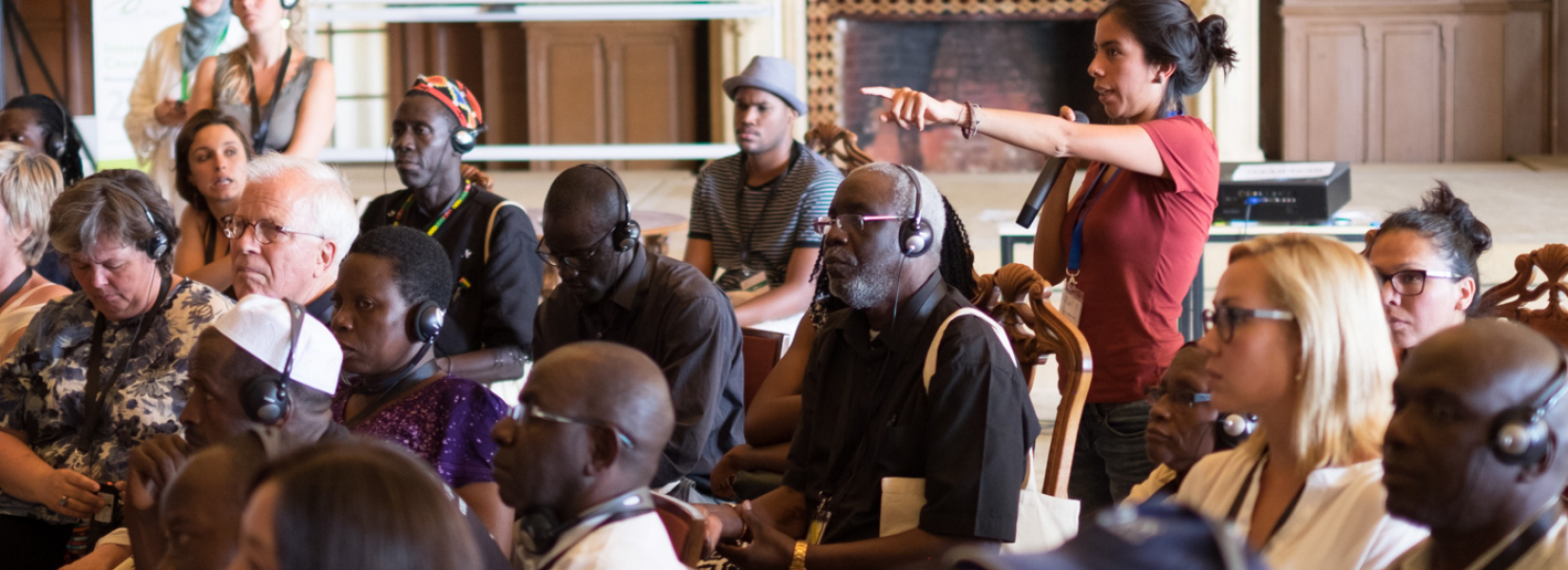

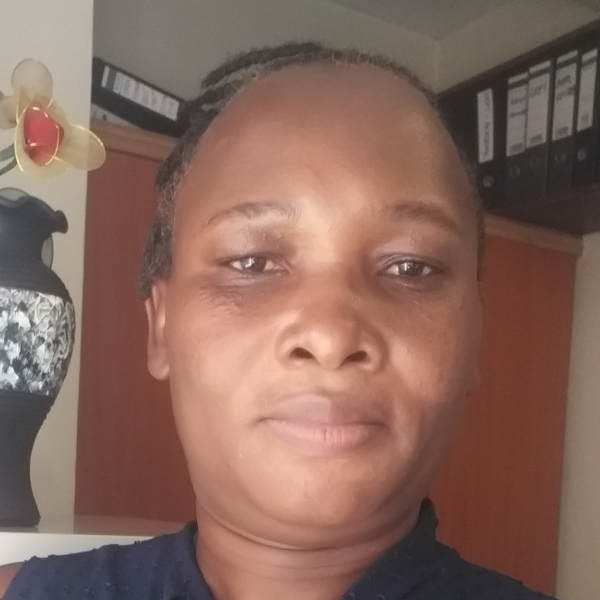
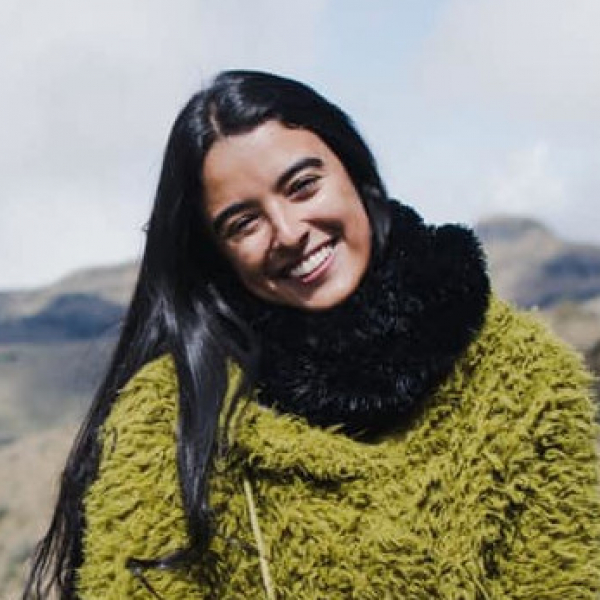
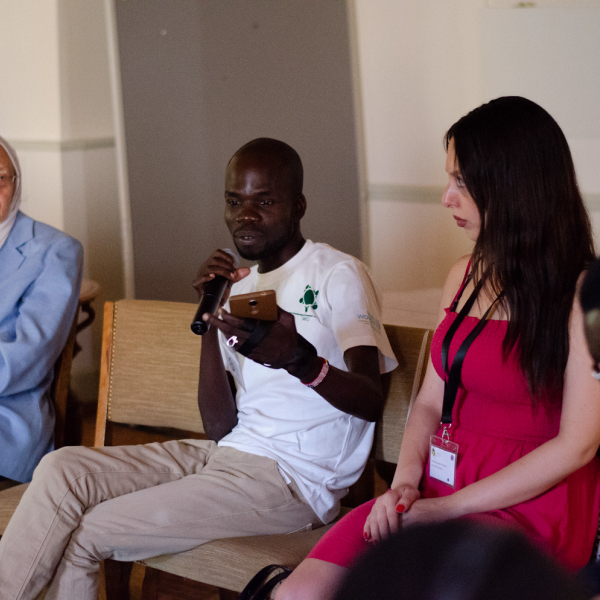
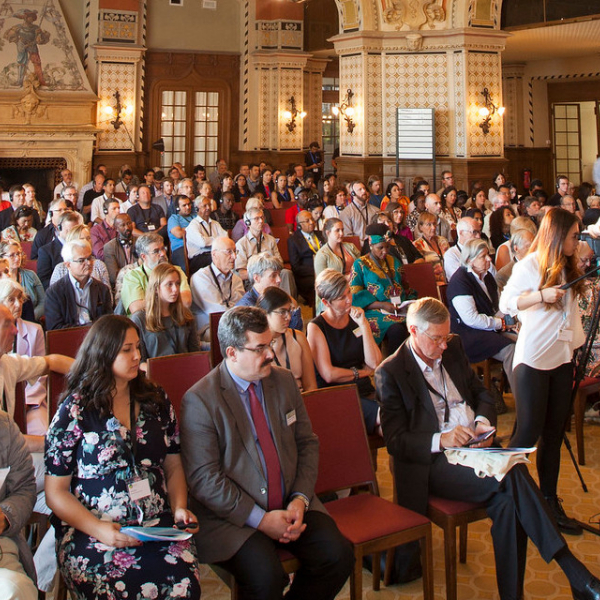
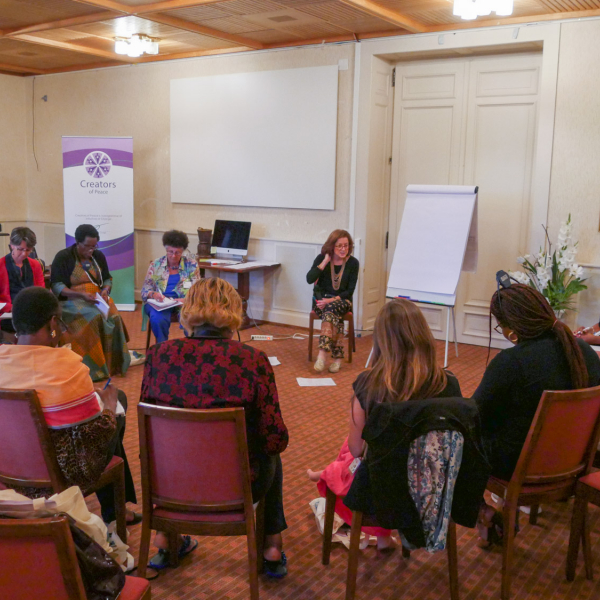
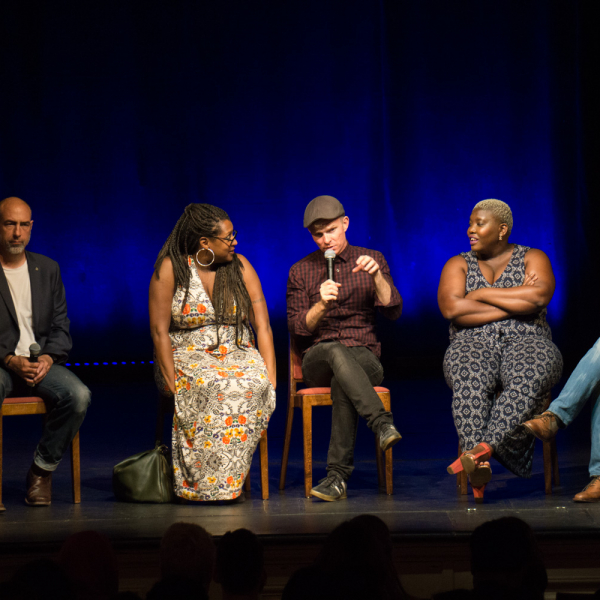
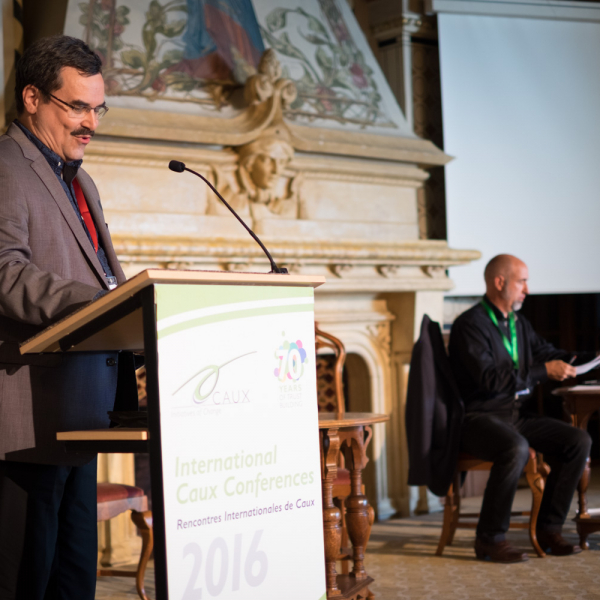
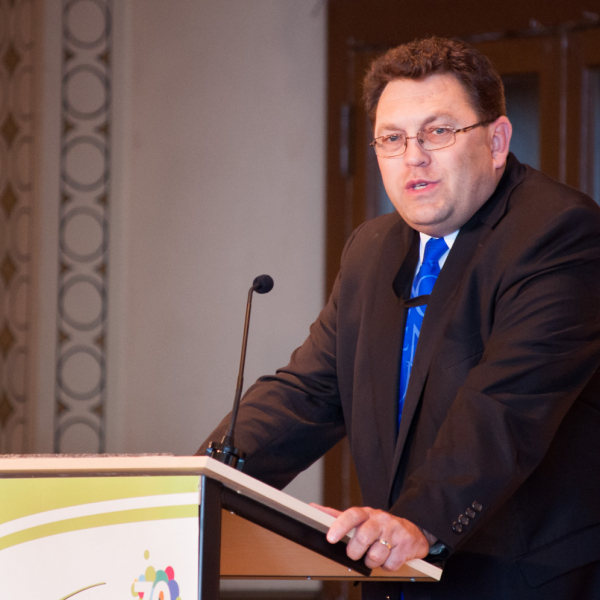
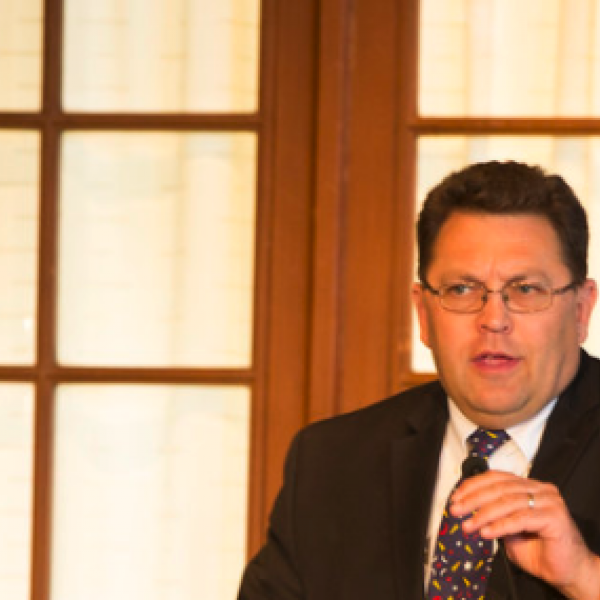
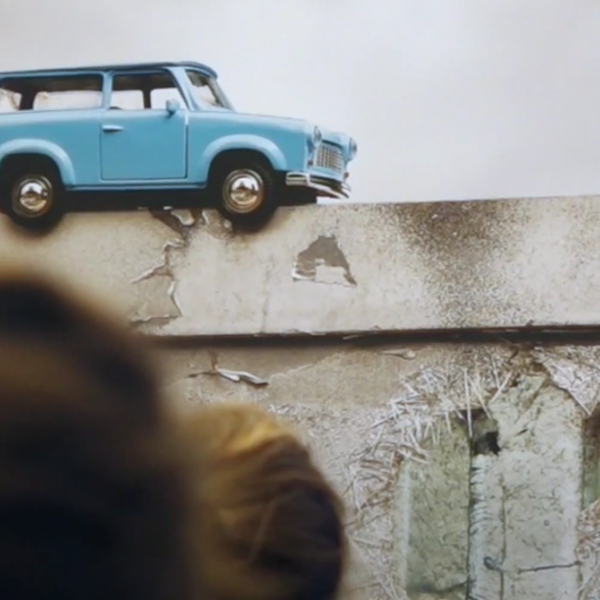
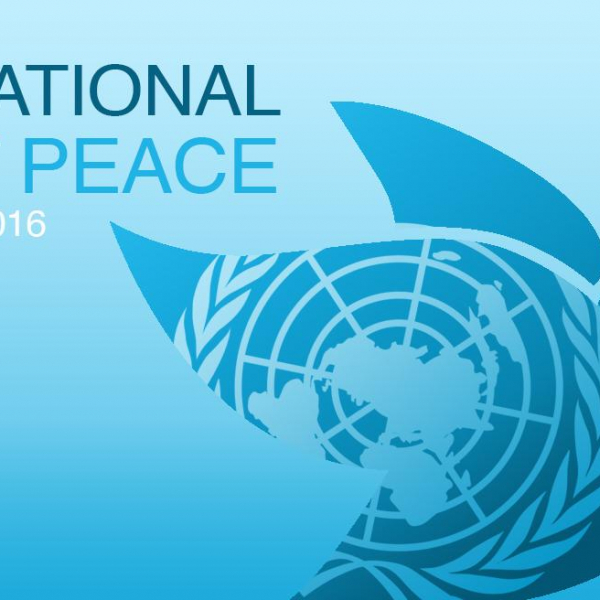
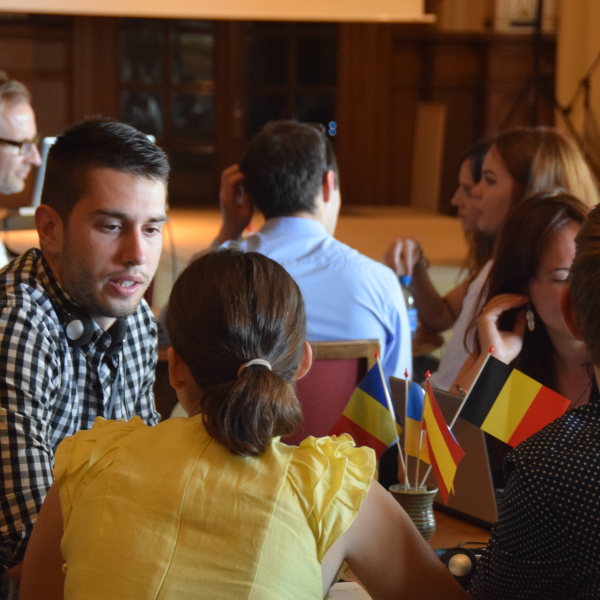
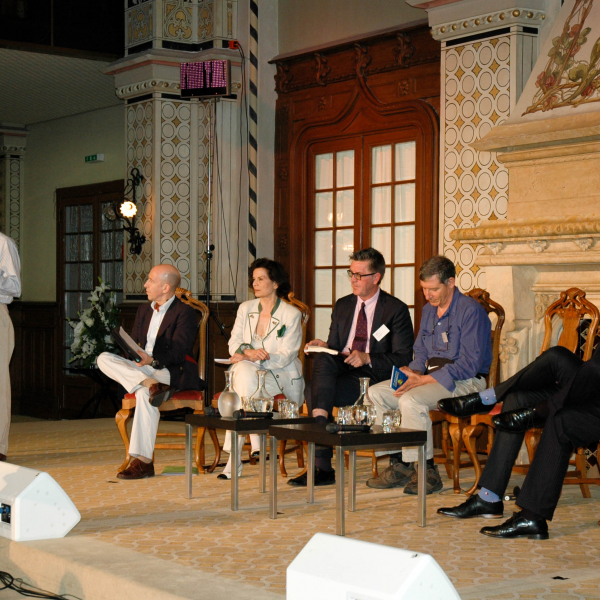
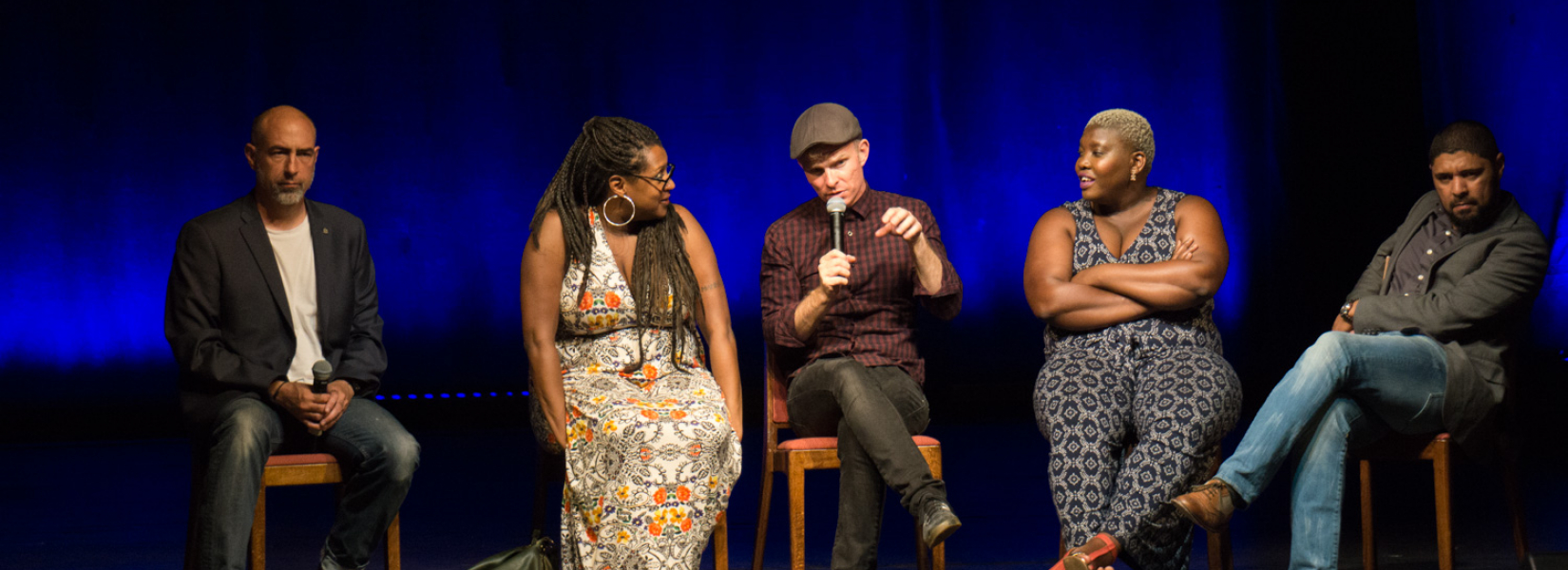
 At the end of the performance, the comedians engaged with the audience in a panel discussion. Audience members asked the comedians about their creative processes, about concepts of race, and about the use of humor as catharsis. A few people described their own experiences of racism and conflict, and some shared their reactions to this innovative use of comedy.
At the end of the performance, the comedians engaged with the audience in a panel discussion. Audience members asked the comedians about their creative processes, about concepts of race, and about the use of humor as catharsis. A few people described their own experiences of racism and conflict, and some shared their reactions to this innovative use of comedy. 



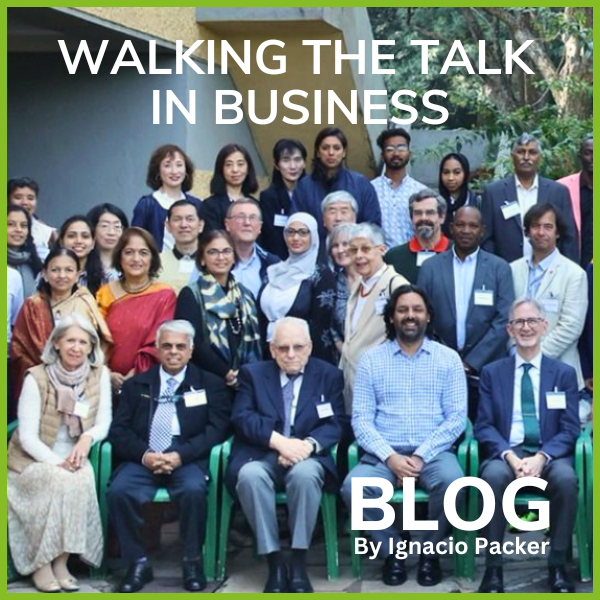









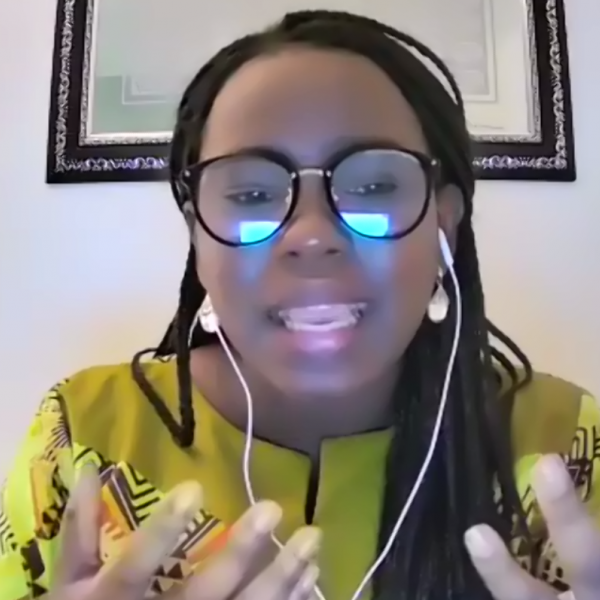

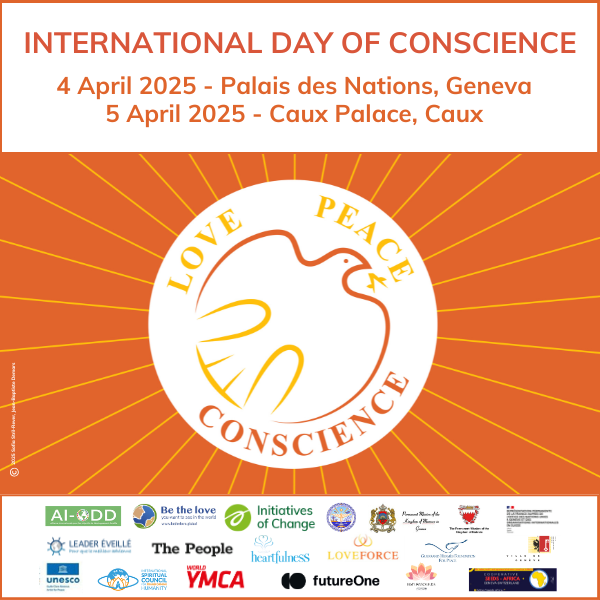














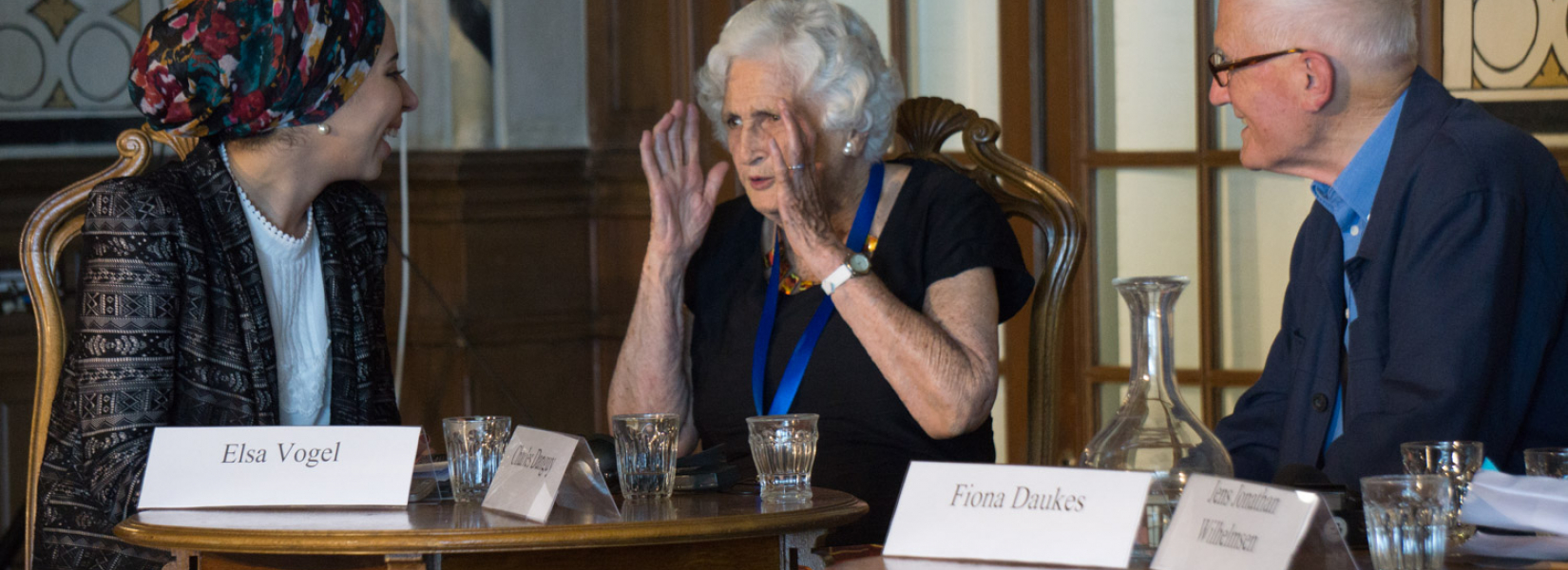
 For Jens, overcoming his hatred for the Germans was a particular challenge. But having done so, the subsequent experience of spending five years among the miners of the Ruhr ‘witnessing the hardship of their lives, and the courage with which they fought for their convictions’ had given him a love for the Germans. He believed that the efforts he had been part of in the Ruhr at that time had helped turn class war in the area into cooperation between management and labour.
For Jens, overcoming his hatred for the Germans was a particular challenge. But having done so, the subsequent experience of spending five years among the miners of the Ruhr ‘witnessing the hardship of their lives, and the courage with which they fought for their convictions’ had given him a love for the Germans. He believed that the efforts he had been part of in the Ruhr at that time had helped turn class war in the area into cooperation between management and labour. Antoine Jaulmes, president of the CAUX-IofC Foundation then proceeded to officially open the AEUB Conference and called for ‘a necessary change of attitude to address the issues and to overcome the lack of trust between European countries’.
Antoine Jaulmes, president of the CAUX-IofC Foundation then proceeded to officially open the AEUB Conference and called for ‘a necessary change of attitude to address the issues and to overcome the lack of trust between European countries’. 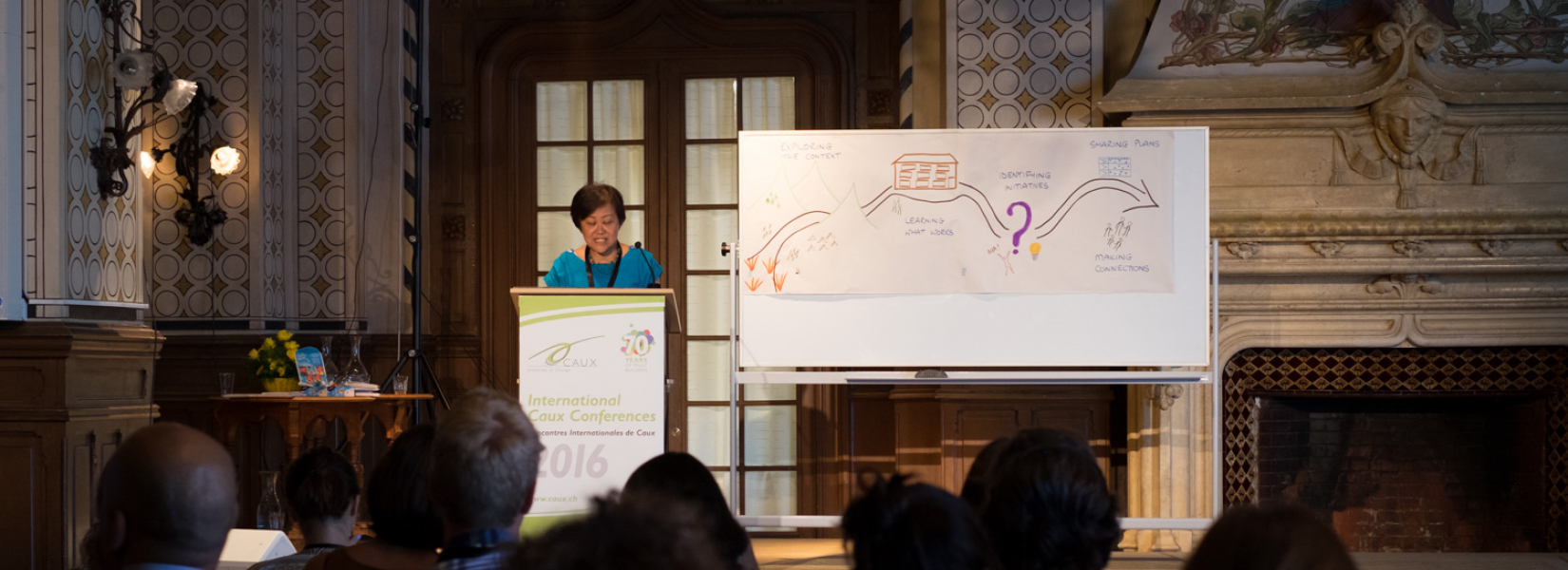
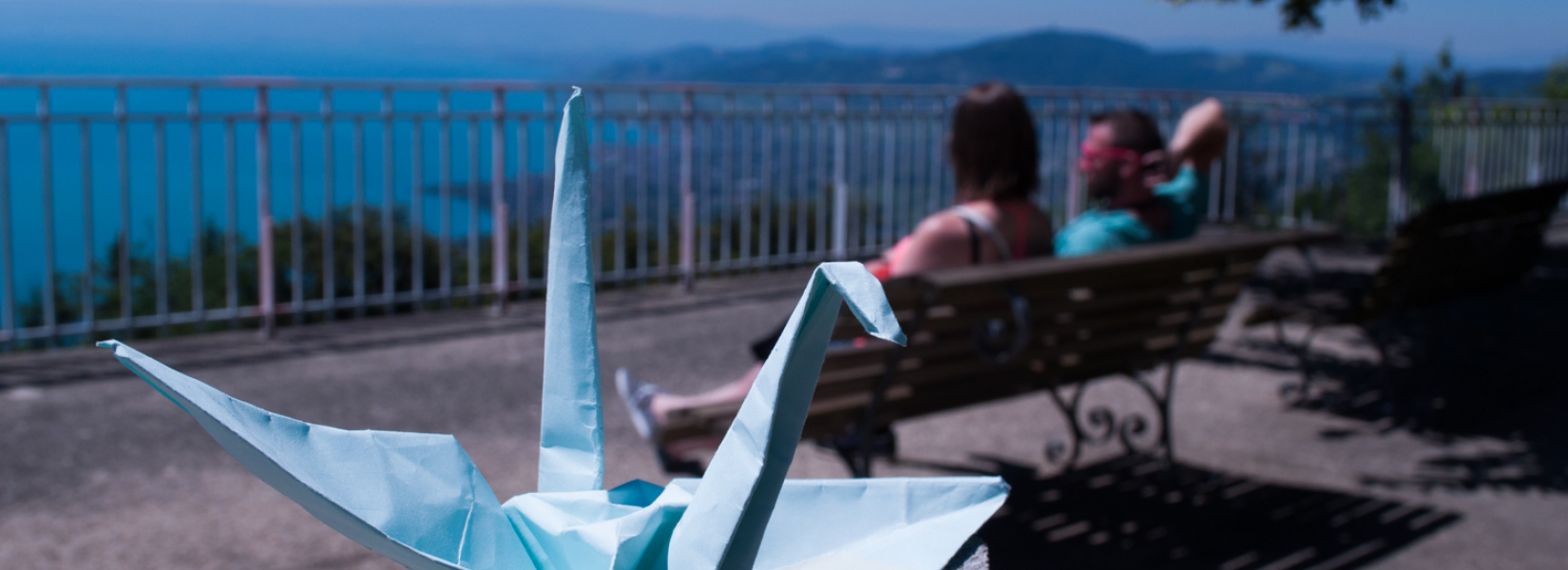
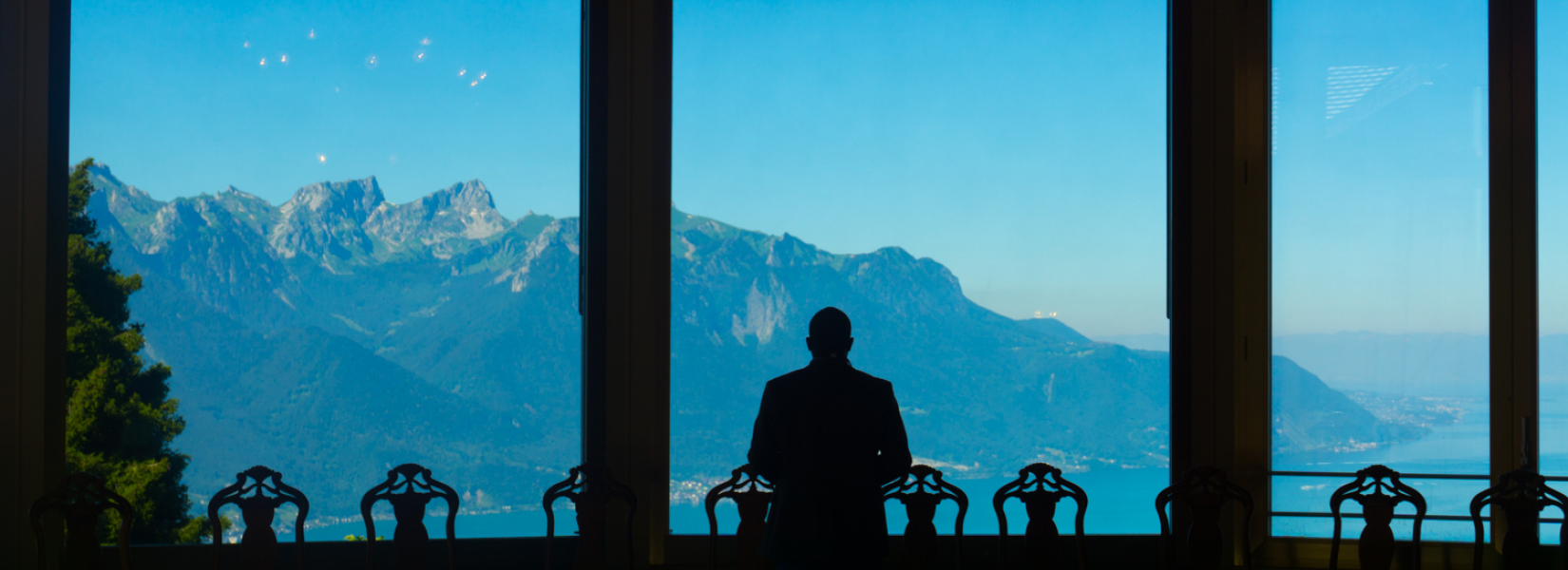
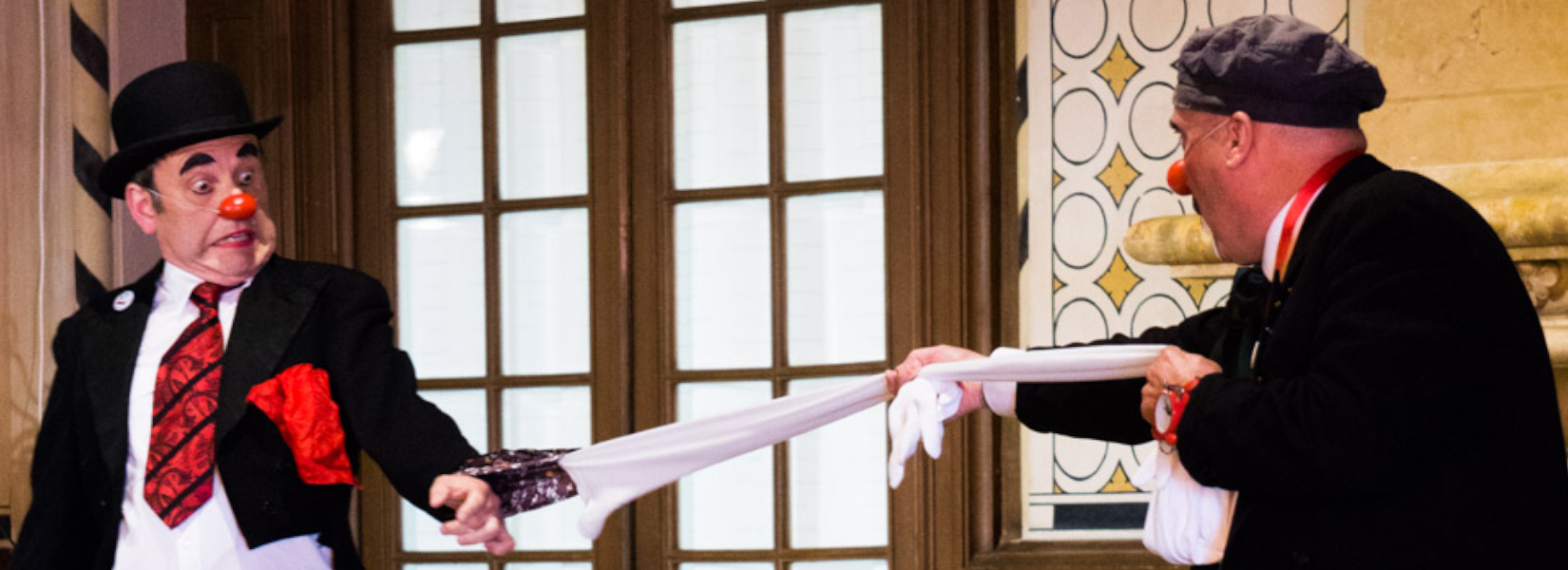
 Tilda Stickley shared her experience working with refugees, most of them fleeing Syria through Turkey, on the Greek island of Chios. She spoke of her time spent in a woman’s centre where women and teenage girls found a safe place away from the harsh conditions of the refugee camps. One of the things Ms Stickley learned from her time in Chios is that “small interactions matter, listening to each other’s stories matter”.
Tilda Stickley shared her experience working with refugees, most of them fleeing Syria through Turkey, on the Greek island of Chios. She spoke of her time spent in a woman’s centre where women and teenage girls found a safe place away from the harsh conditions of the refugee camps. One of the things Ms Stickley learned from her time in Chios is that “small interactions matter, listening to each other’s stories matter”.